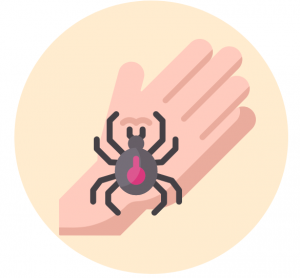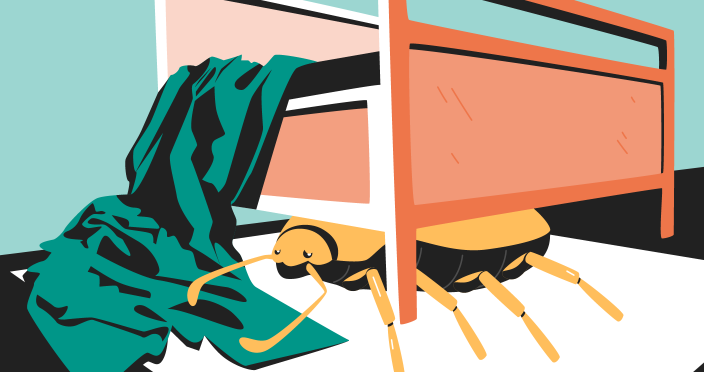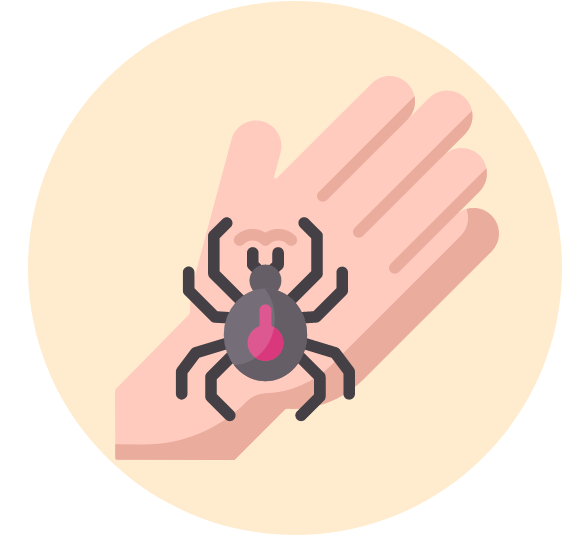The key themes in The Metamorphosis are isolation and alienation. Gregor’s transformation into an insect represents his inability to connect with his loved ones, symbolizing the character’s loneliness and alienation from society. Even before the change, he was alienated from his family due to the necessity of constantly working to support them. Despite being totally dependent on Gregor financially, his parents and sister don’t show much gratitude. After the metamorphosis, his isolation takes on a physical form.
This guide focuses on the themes in The Metamorphosis by Franz Kafka. It explores:
- The meaning of transformation in the novella
- Isolation and alienation in The Metamorphosis
- The role of the family in the story’s plot
The themes of family, transformation, and alienation in The Metamorphosis are supported by relevant quotes from the text to highlight the author’s message.
👽 Isolation in The Metamorphosis

The Metamorphosis themes are undoubtedly worthy of a separate discussion. Among them, the theme of alienation and isolation plays a significant role in the novel.
The literal isolation started when Gregor woke up one morning only to find himself turned into a monstrous vermin-like creature. He gained a new body, which made him an alien to the human world. He lost his ability to speak the human language, making screeching sounds instead. His new routine came to staying in his room day and night, where he explored his condition, contemplated anxieties, and occasionally watched his family through a crack in the bedroom door. Slowly but surely, the family grew tired of this new version of Gregor.
The inability to communicate heavily impacted Gregor’s relationship with his parents and his sister Grete in particular as she tried to understand him the most. Despite his metamorphosis, he remained conscious but couldn’t explain all his emotional and psychological conflicts, which added to his loneliness and desperation. This mutism constrained Gregor from communicating not only with his family but with the whole of humankind.
Yet, there is a reason why Franz Kafka is considered a genius of psychological literature. The irony of Gregor’s alienation in Metamorphosis stretches way beyond his initial transformation and its consequences. Gregor Samsa was lonely and desperate before the events of the book. He worked as a traveling salesman, a job synonymous with constant moving and personal isolation. It restrained him from having any close relationships outside of his family circle.
Even nowadays, people who travel a lot due to the nature of their jobs experience general feelings of loneliness and, sometimes, even depression. The reader has to imagine how hard it was to travel and work in the past with limited means of communication. As Kafka mentions in The Metamorphosis, the only contact between Gregor and his family occurred through letters. This type of correspondence takes a greater amount of time to reach its addressee than modern-day instant texting and calling through the mobile network.
Moreover, Gregor was doomed with emotional isolation from the start, as his family members always took his existence for granted. Gregor’s altruism played a twisted joke on him, making the poor soul a simple “money bag” for the Samsas. This type of alienation has been consistent since the beginning of the Modern Age, when capitalist ideas started to influence people’s minds and hearts. Pragmatism and efficiency took over spiritualism.
Returning to the book, throughout most of the story, Gregor still cares for his family and wishes to help them. He ignores his dire circumstances. Nevertheless, in the last chapter, Gregor realizes that he does not miss anyone from the outside world. In the end, Gregor’s remains are thrown out like some trash by the charwoman.
To sum up all of the above, in the greater context, Gregor’s character has always been condemned to be lonely, as Kafka made sure of that. The transformation only amplified Gregor’s separation from the world. By bringing the alienation theme, Kafka offers his views on the troubles of the Modern Age.
💬 Alienation Quotes
Oh God, he thought, what an exhausting job I’ve picked on! Traveling about day in, day out. It’s much more irritating work than doing the actual business in the office, and on top of that there’s the trouble of constant traveling, of worrying about train connections, the bed and irregular meals, casual acquaintances that are always new and never become intimate friends.
The Metamorphosis, Gregor Samsa, Chapter I
On hearing these words from his mother Gregor realized that the lack of all direct human speech for the past two months together with the monotony of family life must have confused his mind [..].
The Metamorphosis, Narrator, Chapter II
[…] once more, after this long interval, there appeared in his thoughts the figures of the chief and the chief clerk, the commercial travelers and the apprentices, the porter who was so dull-witted, two or three friends in other firms, a chambermaid in one of the rural hotels, a sweet and fleeting memory, a cashier in a milliner’s shop, whom he had wooed earnestly but too slowly-they all appeared, together with strangers or people he had quite forgotten, but instead of helping him and his family they were one and all unapproachable and he was glad when they vanished.
The Metamorphosis, Narrator, Chapter III
🐛 The Metamorphosis: Theme of Transformation

Transformation is one of the key themes in The Metamorphosis by Franz Kafka. The story starts with Gregor waking up and discovering that he turned into an insect-like creature. Although his body has undergone irreversible changes, his mind still remains human, undergoing changes over the course of the story. A symbolic conflict occurs between his mind and body: Gregor human vs. Gregor insect.
The first example presents itself at the very beginning of the book. Despite suspecting that something is wrong, Gregor does not fully grasp the horrid situation he is in. He thinks of it as some sort of temporal “illness.” As time progresses, Gregor keeps worrying about his job duties and inability to work. Throughout the story, it seems as if Gregor never completely realized how monstrous and shocking he looked.
With Gregor’s further development, the new body adjusts to new realities. He tries to walk upright but quickly realizes that the horizontal position is more convenient. Gregor experiments with his numerous legs and climbs onto the walls around the room. He creeps under the sofa by a “half-unconscious action” where he feels more comfortable. The initial boredom and isolation contribute to the reshaping of his consciousness.
Gradually, Gregor’s metamorphosis alters his mindset. He tries to eat the food he used to love, but his strange instincts oppose it. Gregor does not understand who he could refuse his favorite dish. He automatically gorges into rotten chunks left by Grete the second time.
Even when Gregor thinks like a human, his capability to make logical conclusions and decisions slowly fades. The way he acts every time someone comes into his room supports this fact.
Gregor starts to feel disconnected from Grete every time she enters his room and opens the windows. It does not appease his insect senses. “The very way she came in distressed him,” Kafka states. During Grete’s cleaning, Gregor “would crouch trembling under the sofa all the time.”
Another great example of Gregor’s inner conflict occurs when Grete and her mother decide to move furniture from his bedroom. His insect part is, at first, glad about that change, as it would allow him to crawl around the room with more freedom. But then his mother vocalizes her concerns about the possible negative effect of the furniture’s absence on her son’s mind. What if the familiar objects can help him to remain his mind and return to his original body? The question triggers Gregor’s human part of consciousness, forcing him to climb onto the print of the lady in the muff to show protest.
Still, over the rest of the story, the insect side of Gregor slowly but surely overtakes his human side. He hisses and shrieks at every disturbance. As he almost loses his self-identity, the last and most powerful reminder of his consciousness appears at Grete’s violin concert. Gregor feels uplifted and inspired by the music, which makes him feel human again.
For a moment, his human dreams and desires return, but the reader sees that he cannot view himself as a person anymore. He imagines himself as a vermin, communicating with his sister in that form. In a sense, it confirms that he can no longer physically turn into a person, reversing the transformation.
Finally, on his deathbed, Gregor is thinking about his family. His last thoughts are filled with love and tenderness towards the people who abandoned him. Gregor was able to become human again. Thus, The Metamorphosis’ theme of Gregor’s mental transformation made a coherent circle in the book.
💬 Quotes on Transformation
Pitilessly Gregor’s father drove him back, hissing and crying “Shoo!” like a savage. […] If only he would have stopped making that unbearable hissing noise! It made Gregor quite lose his head. He had turned almost completely round when the hissing noise so distracted him that he even turned a little the wrong way again.
The Metamorphosis, Narrator, Chapter I
This made him realize how repulsive the sight of him still was to her, and that it was bound to go on being repulsive, and what an effort it must cost her not to run away even from the sight of the small portion of his body that stuck out from under the sofa.
The Metamorphosis, Narrator, Chapter II
He especially enjoyed hanging suspended from the ceiling; it was much better than lying on the floor; one could breathe more freely; one’s body swung and rocked lightly; and in the almost blissful absorption induced by this suspension it could happen to his own surprise that he let go and fell plump on the floor. Yet he now had his body much better under control than formerly, and even such a big fall did him no harm.
The Metamorphosis, Narrator, Chapter II
👨👩👧👦 Family Theme in The Metamorphosis

One of The Metamorphosis’ key themes is the subject of family and sympathy. Gregor’s close kin are his parents and sister Grete. Their reactions to his metamorphosis affect him significantly, just like his transformation influences their behavior and development.
Mr. Samsa
Mr. Samsa is the authority in the family. Concerning his attitude, the question arises:
How does Gregor’s father react to his transformation?
His first reaction to Gregor was a mixture of anger and great sorrow. After realizing what happened, he “wept till his great chest heaved.” His hostility could have occurred because Mr. Samsa initially acted as the defender of the household, seeing a giant bug in his son’s room.
Soon after, he might have understood that this very bug could be his son, and it caused him great distress. His only son will not be able to provide for the family anymore. So, Mr. Samsa’s initial reaction is double-edged.
For the rest of the novella, the father treats Gregor as an insect, scaring him and hurting him physically. The hostility reaches its boiling point when Mr. Samsa throws apples at Gregor after returning from the tiring job in Chapter 2.
Mrs. Samsa
Mrs. Samsa is horrified by Gregor’s new appearance. She experiences a panic attack the first time she sees her son and cannot bear looking at him again.
Throughout the novella, the mother feels sympathy towards Gregor and tries to think of his condition as some sort of “temporary illness.” She wishes to visit her son’s room from time to time to be close to him, even though she is afraid of looking at him. Her humanity in The Metamorphosis is evident. Mrs. Samsa even begs her husband not to hurt Gregor when he starts throwing apples at the poor soul.
However, this sympathy is not genuine. She also understands that the insect, Gregor or not, cannot support the family anymore. She subconsciously does not wish to deal with Gregor’s new shape. Her exhaustion from her new job and lack of comfort makes her accept Grete’s demand to “get rid of it” (Gregor) in the last chapter.
Grete
The sister’s relationship with Gregor is complicated as her attitude changes and develops in the book.
At first, Grete is sympathetic towards Gregor, as her brother always loved and supported her. She tries to think that Gregor is still there in an insect body, though she is terrified by his presence from the beginning. Grete starts looking after Gregor by bringing him food and cleaning his room. However, this sympathy gradually becomes twisted and untrue, as she looks after him less and less. She cares about being the only one who takes care of Gregor rather than about his well-being.
Why does Grete’s attitude change?
There are two ways to answer this question. Firstly, the exhausting days of working as a salesgirl take a toll on her, making her neglect her nursing duties. Secondly, her relationship with Gregor deteriorates. His inability to communicate and his behavior force Grete to perceive him more as an insect.
At the violin concert, Gregor embarrasses the family in front of their lodgers that leads to a minor scandal. This event makes Grete lose the remaining sympathy for him. She is convinced that if there were her brother in the insect’s body, he would not have made so much trouble for the family. With ease, she persuades the mother and father to agree with her.
Gregor
The readers see the story from Gregor’s point of view. The second chapter describes Gregor’s initial attitude towards his family. So, there is the following question:
How does Gregor treat his family during part II?
Gregor recalls his initial pride at being able to support his family. He also contemplates how they will manage without his help now. These thoughts give him much anxiety as he wants to help and support his parents and sister even after the transformation.
Gregor misses his mother, feels proud and terrified of his father’s growing authority.
The only human that visits him throughout chapter 2 is his sister, and Gregor is grateful that she looks after him. He wishes to thank her but cannot produce human speech.
Soon, Gregor’s relationship with everyone starts to decline as he becomes less human.
How has Gregor’s attitude towards his family changed?
His humanity slowly fades, and by the end of the novella, he acts like an insect. He gets frustrated with both Grete’s negligence towards him and her presence. He starts to hide from her every time she enters the room to terrify her less and escape the noise and disturbance.
Gregor doesn’t strive for communication with the family members and views them from the corner of his room like an outsider. He reflects less on his connection with people, thinking more about food and his worsening physical state.
💬 Quotes about Family
His parents did not understand this so well; they had convinced themselves in the course of years that Gregor was settled for life in this firm, and besides they were so preoccupied with their immediate troubles that all foresight had forsaken them.
The Metamorphosis, Narrator, Chapter I
These had been fine times, and they had never recurred, at least not with the same sense of glory, although later on Gregor had earned so much money that he was able to meet the expenses of the whole household and did so. They had simply got used to it, both the family and Gregor; the money was gratefully accepted and gladly given, but there was no special uprush of warm feeling.
The Metamorphosis, Narrator, Chapter II
He must go,” cried Gregor’s sister, “that’s the only solution, Father. You must just try to get rid of the idea that this is Gregor. The fact that we’ve believed it for so long is the root of all our trouble. But how can it be Gregor? If this were Gregor, he would have realized long ago that human beings can’t live with such a creature, and he’d have gone away on his own accord. Then we wouldn’t have any brother, but we’d be able to go on living and keep his memory in honor. As it is, this creature persecutes us, drives away our lodgers, obviously wants the whole apartment to himself and would have us all sleep in the gutter.
The Metamorphosis, Grete Samsa, Chapter III
💎 The Metamorphosis’ Deeper Meaning
The essential question of the story is whether it is possible to feel sympathy and kindness towards a horrifying creature who cannot be helpful or likable. Does such a being deserve the same sympathy as a human?
As everyone in the family starts working, they realize that they are becoming independent from Gregor. They grow tired and enraged due to all the responsibilities towards him. Yet, the biggest block to their sympathy is the loss of his human shape and inability to communicate. He does not act like a human being, cannot speak or express his thoughts and emotions. From his family’s viewpoint, this monstrous creature lacks every trait that Gregor once had.
Gregor faced inhumanity when he turned into a vermin, and the reader sees how materialism influences people’s relationships. Even though the story suggests that Gregor deserves sympathy and love in his new form, it also demonstrates how that’s impossible through his family. They were able to regain positive emotions for him only after his death.
Thanks for reading the article! To examine the short story even more, read our article about symbolism in The Metamorphosis.



